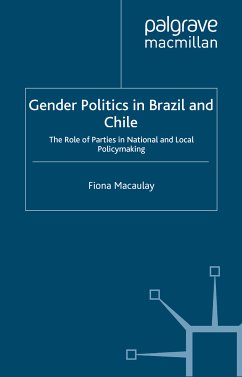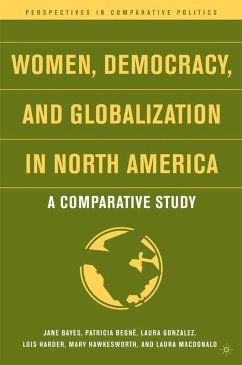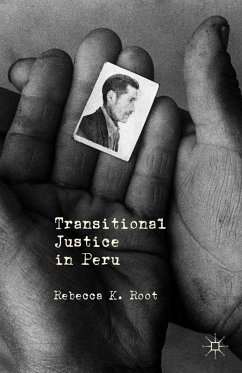
Gender Politics in Brazil and Chile (eBook, PDF)
The Role of Parties in National and Local Policymaking
Versandkostenfrei!
Sofort per Download lieferbar
72,95 €
inkl. MwSt.
Weitere Ausgaben:

PAYBACK Punkte
36 °P sammeln!
What impact do political parties have on women's political representation and on state gender policies? Does this vary at national and local levels? This study looks at the National Women's Ministry in Chile, a country of ideological conflict, strong parties and centralized government and the leftwing Brazilian Workers' Party, characterised by clientelism, weak parties and decentralization.
Dieser Download kann aus rechtlichen Gründen nur mit Rechnungsadresse in A, B, BG, CY, CZ, D, DK, EW, E, FIN, F, GR, HR, H, IRL, I, LT, L, LR, M, NL, PL, P, R, S, SLO, SK ausgeliefert werden.












